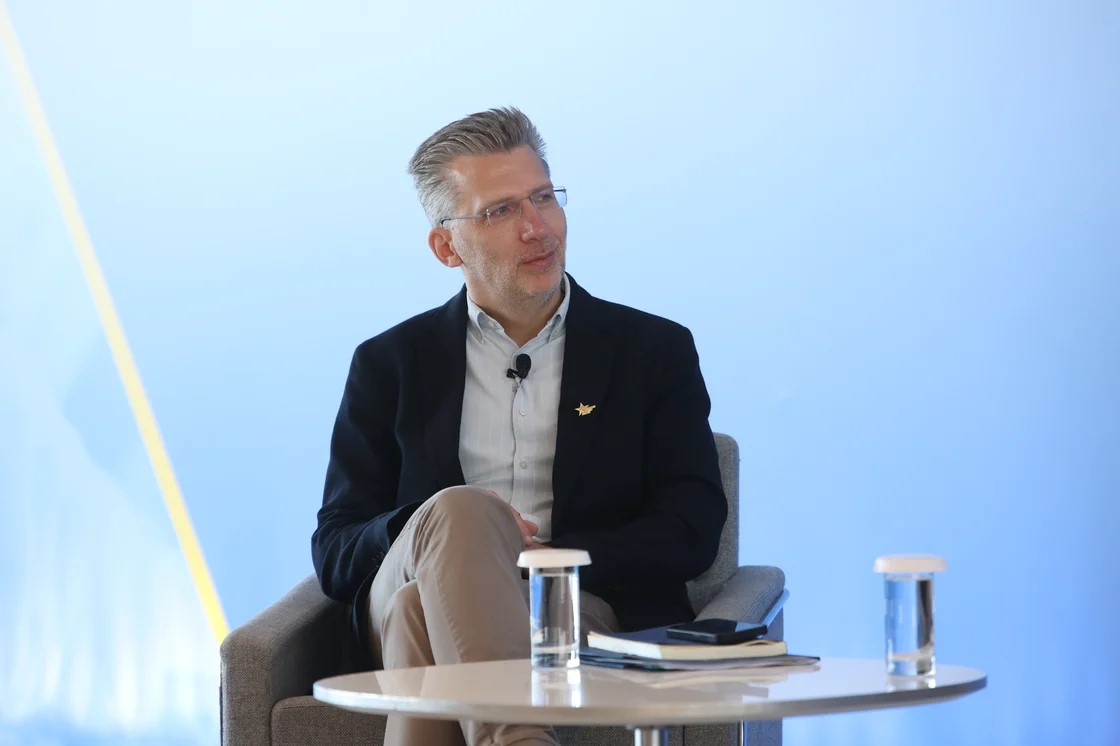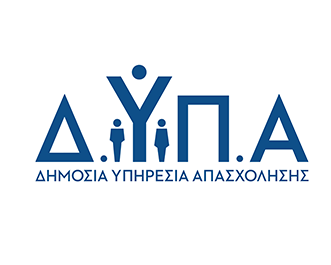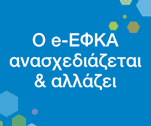More than 260 thousand Greek citizens have received certification in digital and green skills
More than 260 thousand Greek citizens have received certification in digital and green skills
Mr. Spiros Protopsaltis, DYPA Governor and National Coordinator for the European Year of Skills, presented the important work that has already been implemented in the sector of training along with the ambitious programmes that are being prepared for the immediate future in the event titled "Empowering Greece with Skills for a Sustainable Future" organised by the Greek Public Service (DYPA).
260.000 Greek citizens have already completed vocational training programmes and received the respective certification (68% thereof were women, 69% opted for programmes on digital skills, 50% were secondary degree graduates, 42% were university graduates and 58% of the beneficiaries live outside Attica and Central Macedonia).
By the year 2025, DYPA's goal is to have 500.000 Greek citizens certified in digital and green skills, enabling Greece to improve its place in the European tables recording the national performances in sectors such as development, activation and skills matching. Furthermore, 36.000 Greek citizens have completed training programmes offered by tech giants DYPA partners with such as Microsoft, Cisco, Amazon, Huawei, Coursera and Google.
Mr. Protopsaltis also stated that "The aid from the Recovery and Resilience Facility offers a historic opportunity to DYPA, providing unprecedented resources amounting to one billion Euros alone for training and reskilling programmes for both unemployed persons and employees. We will attempt to ensure that no one will be left behind. We develop specially targeted programmes for groups such as prisoners and those in rehab programmes".
DYPA has formed collaborations with municipalities, associations and universities as well as partnerships with private sector businesses and implemented Open Day actions for the DYPA Vocational Schools throughout Greece. As part of the reforms being implemented, the National Skills Council, the Single Digital Portal for Skills and the National Register of Continuing Vocational Training Providers have been established, which offers monitoring of the graduates progress in the labour market. DYPA has a budget of 143 million Euros for building upgrade and equipment modernization and at the same time has established seven experimental apprenticeship schools (PEPAS) in the tourism sector in collaboration with the German-Hellenic Chamber of Commerce and Industry and the Institute of SETE (INSETE) to train students to work in high level hotels.
New actions for a total of 130.000 citizens are designed in the next period: These are the following: green skills for 50.000 unemployed persons and employees, digital and green certificates for 30.000 unemployed persons, training in universities for 25.000 unemployed persons and employees, AI training for 10.000 unemployed persons and employees, drivers vocational training for 10.000 unemployed persons, security personnel training for 5.500 unemployed persons and advanced digital skills for 1.000 unemployed persons.
The need for the European endeavour to "detach from Brussels" and to reinforce the human capital was underscored by the Vice-President of the European Commission, Mr. Margaritis Schinas, who, inter alia, stated:
"Skills shortage is endemic in Europe, affects all countries and all sectors. The competition to attract talent is global. Europe competes with very tough players such as the USA, Japan, Canada and Australia, countries that for decades have prepared for the competition to attract talent. This is why we need to detach this endeavour from the Brussels decision centre. The skills revolution must reach the places where people in need of skills actually live,
in the regions, on the islands, in the mountainous areas, to all those who do not have an easy access to trade unions or employers' associations."
As Mr. Margaritis Schinas noted, strengthening skills is a part of the attempt to reinforce Europe's "resilience" so that "Europe can stand on its own feet .
"Who will have to face these challenges? Us, the EU labour force, we will have to be the catalyst for the social agenda. We need people and these people have to have the necessary tools and skills. The business as usual modus operandi is no longer a viable option" he said. And Mr. Shinas added that businesses in Europe have committed to offer training posts to more than 10 million persons all over Europe, Greece is part of this endeavour with at least 40 institutions and businesses that have signed the Contract with the dynamic training proposals. He also stated that at the same time the unprecedented amount of 65 billion euros has been granted in Europe for training programs, 5 billion of which will be allocated to Greece.
Finally, Mr. Margaritis Schinas referred to the EU Talent Pool, a hiring platform for third country citizens and he stressed the fact that whoever comes to Europe to work should live in full respect of the principles and values governing European societies and of the European way of life, for example respect for women, diversity and religious freedom and multiculturalism.
During the discussion that followed titled "Upskilling & reskilling insights: discussion with students and employees", the Minister of State, Mr. Akis Skertsos stated that Greece is facing an opportunity and a challenge at the same time; the Greek economy is developing and Greece has become an investment destination. However, there is a need to link the labour market needs with the employees' skills. He also marked the progress DYPA has made leaving behind its past as OAED, which was primarily known as an institution for granting the unemployment and other benefits. He also noted that "there is plenty to done" and that "what is required is closer collaboration with businesses and employers' associations."
Mr. Skertsos also noted, "I personally have changed nine jobs in 25 years of working life. Change is a rule of life, mobility is an element of the modern knowledge-based economy and we all need to adapt. Public administration has to provide the necessary programmes that both businesses and employees require".
Beneficiaries of the DYPA training programmes also participated in this particular discussion and shared their experience with the audience.
Konstantina Anastasellou, AUTH graduate, Department of Economics, who participated in the DYPA Microsoft Cloud Services training programme , said that it was a programme of "high quality that enriched my CV and extended the pool of jobs I can apply for. The number of interviews I was called for increased and I received job offers which pleased me. It exceeded my expectations."
Mr. Nikos Gerakis, University of Crete graduate, Department of Political Sciences, who attended the DYPA training programme titled Online Branding and Communication , emphasised the fact that the training programme was "short, comprehensive and flexible and employed modern methods, all important factors for me since I also work at the same time ".
Mr. Markos Kerasovitis, student at the Ioannina EPAS in the field of study/ specialty of technician of electrical works said that he "has gained practical knowledge such as communicating with clients and ways to present an offer". He also admitted that he has received job offers from various employers and from the employer he currently does his apprenticeship too. And he added that it is necessary "for studies to follow closely the developments in technology and for training programmes to stay updated.
Finally, closing the discussion Mr. Spiros Protopsaltis noted that DYPA is attempting to "communicate the benefits of vocational training to the Greek family."
For further information about the event click here: https://year-of-skills-greece.gr/
For further information on all DYPA implemented actions in the framework of the European Year of Skills click here: https://www.dypa.gov.gr/europeanyearofskills
Click here to download the Press Release





























